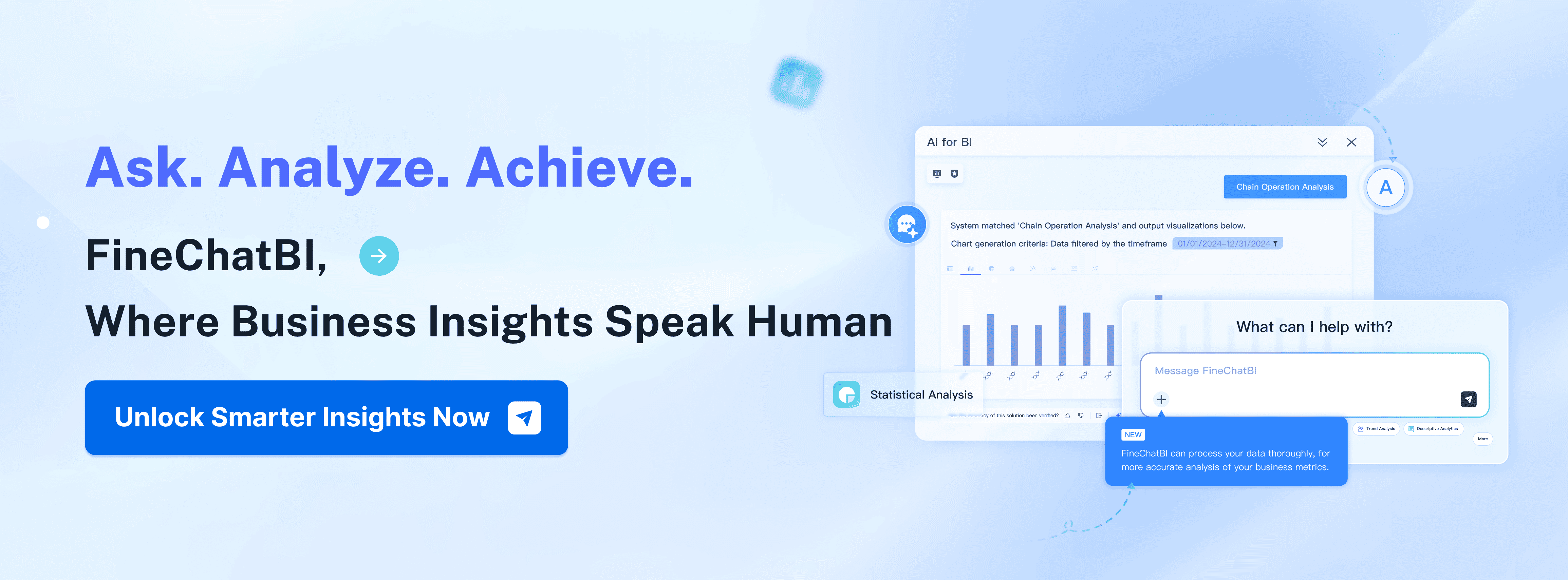The demand for data analyst jobs has skyrocketed in recent years. Employment for data scientists is projected to grow by 36% from 2021 to 2031, while statisticians will see a 31% increase. These rates far exceed the 5% average growth across all occupations. Salaries have also surged, with the average rising from $70,365 in 2023 to $90,628 in 2024. As a data analyst, your choice between a startup or an established company can shape your career path. Understanding these environments helps you align your goals with the right opportunities.

Key Takeaways on Data Analyst Jobs
- Job Growth and Skills: Data analyst jobs are growing rapidly (36% by 2031), making skills like SQL, Python, and data visualization essential for success.
- Startups vs. Big Companies: Startups offer flexibility, creativity, and leadership opportunities, while big companies provide stability, mentorship, and higher pay.
- Career Fit: Choose based on your goals—startups for dynamic roles, big companies for structured paths—and focus on learning key skills to thrive in both.
Overview of Data Analyst Jobs
What is a Data Analyst?
A data analyst is a professional who examines data to uncover patterns, trends, and insights that help organizations make informed decisions. You might think of them as detectives for data, using tools like SQL, Python, and Excel to solve business problems. Their work involves collecting, cleaning, and interpreting data to answer critical questions. For example, they might analyze customer behavior to improve marketing strategies or study sales data to identify profitable products.
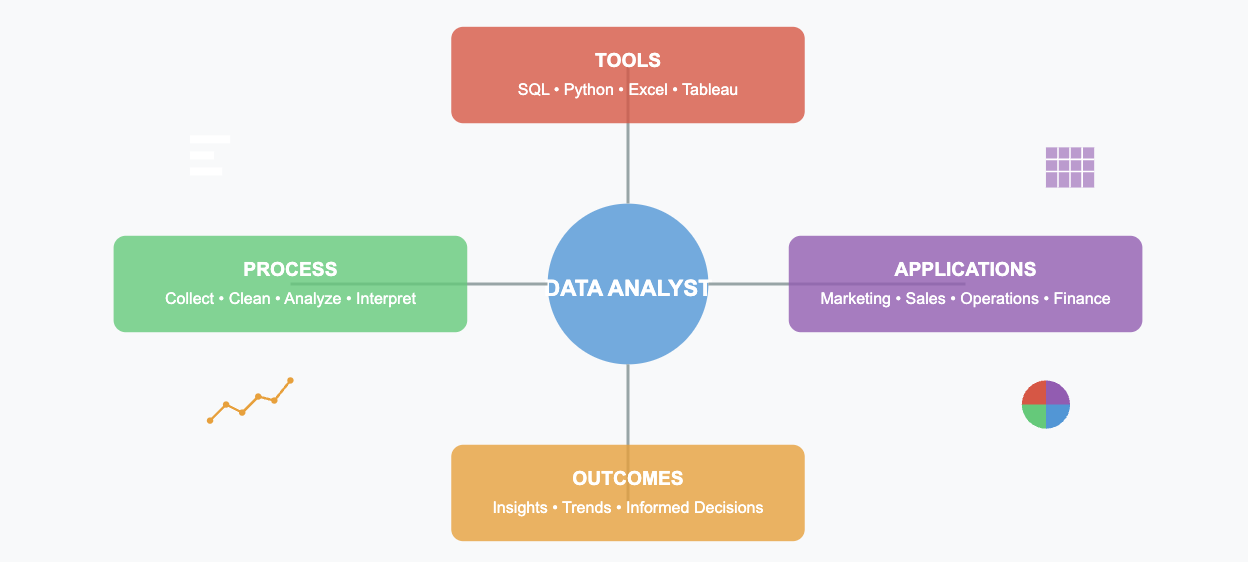
In today’s data-driven world, businesses rely on data analysts to transform raw numbers into actionable insights. This role requires a mix of technical skills and problem-solving abilities. As a candidate, you need to be comfortable working with large datasets and have a knack for storytelling through data visualization tools like Tableau. Companies value these skills because they directly impact decision-making and strategy.
Why Are Data Analyst Jobs Crucial in Modern Organizations?
Data analyst jobs are vital because they bridge the gap between raw data and business decisions. Organizations across industries depend on data to stay competitive. Whether it’s predicting market trends or optimizing operations, data analysts play a key role in shaping strategies.
The demand for skilled candidates in this field continues to grow. According to recent data, the median salary for data analysts is $82,000, with a projected job growth of 35% from 2022 to 2032. This growth far exceeds the average for most professions. Additionally, job openings for data analysts are expected to increase by 23% between 2021 and 2031. Despite this demand, there’s an estimated shortage of 2.7 million data professionals, making recruitment a top priority for companies.
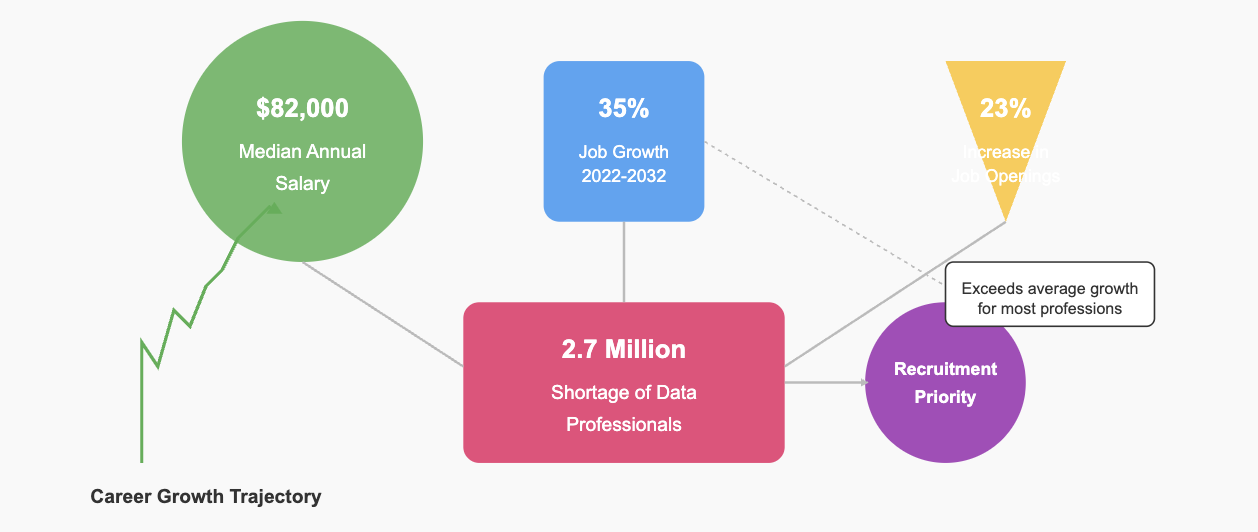
Organizations are adopting innovative recruitment strategies to attract talent. These include offering competitive salaries, flexible work arrangements, and opportunities for skill development. A recent analysis of 1,000 job postings revealed that the average salary for data analyst jobs in 2024 is $90,628, with most positions offering between $60,000 and $100,000. Top states for job opportunities include California, New York, and Texas, reflecting the nationwide demand for data-driven expertise.
In a data-driven world, businesses need analysts to interpret complex datasets and provide actionable insights. This reliance on data has made recruitment strategies for data analysts more competitive than ever. By mastering key skills and staying updated with industry trends, you can position yourself as a valuable asset in this growing field.
Tip: Focus on developing skills in SQL, Python, and data visualization tools. These are among the most sought-after by employers.
Data Analyst Jobs: Work Environments in Startups vs Established Companies

Work Culture in Startups
Flexibility and Innovation
Startups thrive on flexibility and innovation. As a data analyst, you will often find yourself in an environment where adaptability is key. Smaller teams mean you may handle a variety of tasks, from building dashboards to analyzing customer trends. This diversity allows you to develop a broad skill set. Startups also encourage creative problem-solving. Your insights can directly influence product development or marketing strategies, making your role highly impactful.
In startups, decision-making processes are often informal and quick. For example, founders may personally interview candidates, reflecting a hands-on approach. This culture fosters innovation and allows you to experiment with new tools or methods. If you enjoy a fast-paced setting where your contributions shape the company’s direction, a startup might be the right fit for you.
Dynamic and Fast-Paced Nature
The dynamic nature of startups keeps you on your toes. Deadlines are tight, and priorities can shift rapidly. As a data analyst, you must adapt to these changes while delivering actionable insights. Startups rely heavily on data to make informed decisions quickly. Your ability to identify trends in customer behavior or market demand becomes crucial in such an environment.
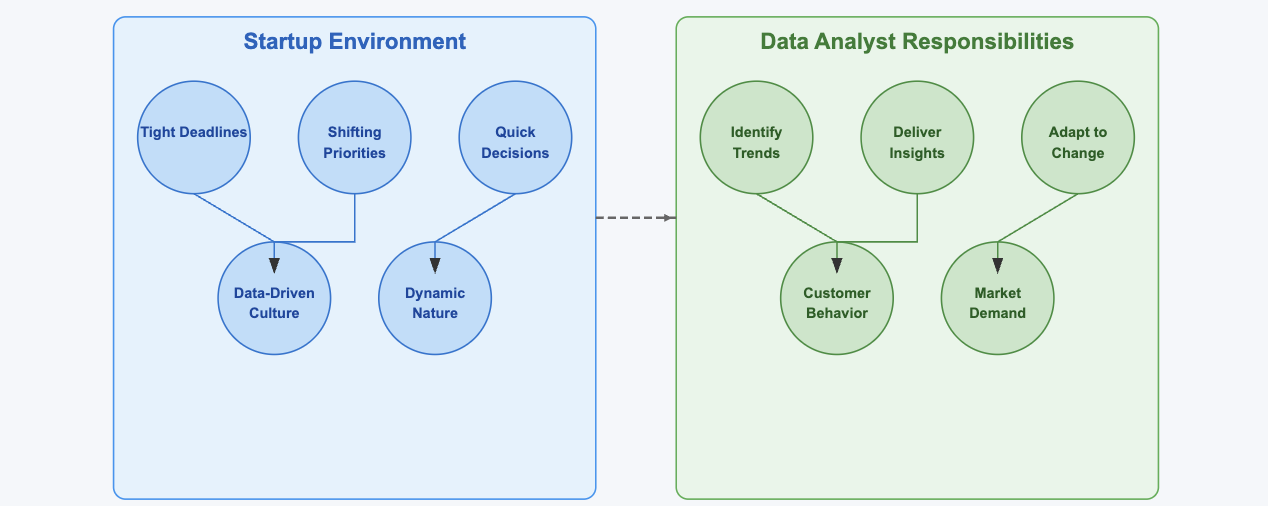
This fast-paced culture also means you will likely work closely with other teams. Collaboration is often informal, with fewer hierarchical barriers. This setup allows you to contribute ideas freely and see their immediate impact. However, the high-pressure environment may not suit everyone. If you thrive under pressure and enjoy being part of a growing organization, startups offer a unique and rewarding experience.
Work Culture in Established Companies
Structured Processes and Hierarchies
Established companies operate with well-defined processes and hierarchies. As a data analyst, your role will likely focus on specialized tasks. For instance, you might concentrate on optimizing a specific data pipeline or analyzing sales trends for a particular region. This specialization allows you to deepen your expertise in a specific area.
The structured environment ensures stability and predictability. You will follow clear guidelines and workflows, which can make your job more manageable. However, this structure may limit your decision-making autonomy. If you prefer a predictable work environment with clear expectations, an established company could be a better fit.

Stability and Predictability
Stability is a hallmark of established companies. These organizations often offer competitive salaries and comprehensive benefits, reflecting their financial security. As a data analyst, you will benefit from access to advanced tools and resources. This support enables you to focus on delivering high-quality insights without worrying about resource constraints.
Collaboration in established companies tends to follow formal processes. Teams often use structured communication channels, which can enhance efficiency but may feel restrictive. Despite these limitations, the stability and resources provided by established companies make them an attractive option for many professionals.
Key Differences in Work Environments
Autonomy and Decision-Making
Startups offer greater autonomy in decision-making. With fewer hierarchical layers, you can take ownership of your projects and see their direct impact. In contrast, established companies often have bureaucratic processes that limit your decision-making freedom. While this structure ensures consistency, it may restrict your ability to innovate.
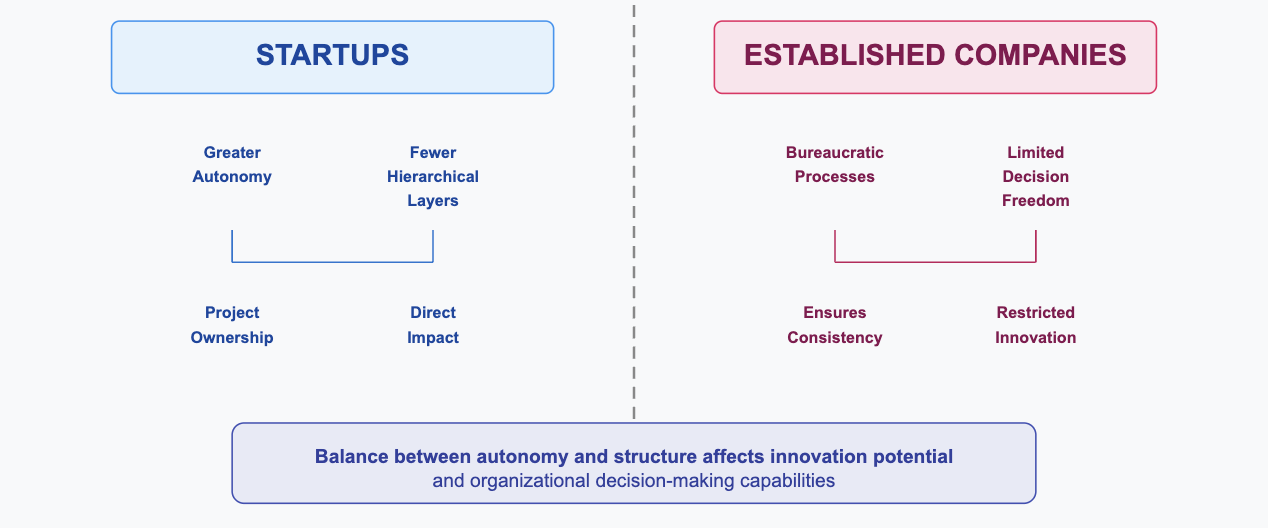
Collaboration and Team Dynamics
Collaboration styles differ significantly between startups and established companies. Startups promote informal and flexible teamwork, allowing you to share ideas freely. Established companies, however, rely on structured collaboration processes. While these processes ensure efficiency, they may lack the spontaneity found in startups. Research shows that companies with collaborative environments experience 30% lower staff turnover, highlighting the importance of effective teamwork.
Note: Whether you choose a startup or an established company, understanding the work culture can help you align your career goals with the right environment.
Responsibilities and Tools for Data Analyst Jobs

Responsibilities in Startups
Building Data Infrastructure
In startups, you often take on the critical task of building data infrastructure from scratch. This involves setting up databases, creating data pipelines, and ensuring data flows seamlessly across systems. Startups rely on you to establish a foundation for their data-driven decision-making. For example, you might integrate data from customer surveys, website analytics, and sales platforms to create a unified database. This infrastructure becomes the backbone of the data analysis process, enabling the company to extract actionable insights.
Wearing Multiple Hats
Startups demand versatility. Your role as a data analyst will likely extend beyond traditional responsibilities. You might collect and clean data, analyze trends, and even present findings to stakeholders. Tasks could range from managing databases to performing predictive modeling. For instance, you might use data visualization techniques to create dashboards that help teams track performance metrics. This variety allows you to develop a broad skill set, making you a valuable asset in recruiting for startups.
Responsibilities in Established Companies
Specialized Roles
In established companies, your responsibilities tend to be more specialized. You might focus on a specific aspect of the data analysis process, such as optimizing a data pipeline or conducting statistical analysis for a particular department. This specialization allows you to deepen your expertise in specific data analysis techniques. For example, you might work exclusively on predictive analytics to forecast sales trends, using advanced tools like Python or R.

Focus on Specific Data Functions
Established companies often assign you to well-defined functions. These might include generating reports, maintaining data quality, or analyzing customer behavior. Your role will likely involve collaborating with other departments to provide insights that align with organizational goals. For instance, you might analyze sales data to identify profitable products or use machine learning techniques to predict customer churn. This focus ensures that your contributions directly support the company’s strategic objectives.
Tools and Technologies Used
Tools Commonly Used in Startups
Startups often prioritize tools that are cost-effective and adaptable. You might use platforms like Google Analytics or Mixpanel to track user interactions. These tools help optimize user experience by providing insights into customer behavior. Additionally, startups frequently rely on open-source programming languages like Python and R for data analysis. Proficiency in SQL and Excel is also essential for managing and analyzing data effectively.
Tools Commonly Used in Established Companies
In established companies, you will likely have access to advanced tools and technologies. These might include enterprise-level software like Tableau or Power BI for data visualization. Companies like Netflix and Amazon use sophisticated analytics platforms to understand customer preferences and drive growth. Your expertise in tools like SAS and machine learning platforms will enable you to handle complex data analysis tasks.
How FineDataLink Enhances Data Integration for Data Analysts
FineDataLink simplifies the data integration process, making it easier for you to manage data from multiple sources. Its real-time synchronization capabilities allow you to build efficient data pipelines with minimal latency. This feature is particularly useful for database migration and real-time analytics. FineDataLink also supports over 100 data sources, enabling seamless integration across diverse systems. Its low-code platform and drag-and-drop functionality make it accessible, even if you have limited technical expertise. By using FineDataLink, you can streamline your workflow and focus on delivering high-quality insights.
In the data governance full-link diagram below, FanRuan's products cover the second and fourth core steps. FineDataLink belongs to the Data Integration and Data Quality Management Layer, focusing on efficient data integration and quality management. FineBI and FineReport are part of the BI and Analytics Layer, providing actionable insights and intuitive dashboards for enriched analytics. Two components in the diagram are not part of our services, likely representing external solutions. Together, these tools ensure a seamless and effective data governance process, highlighting FanRuan's strengths in integration, quality management, and analytics.
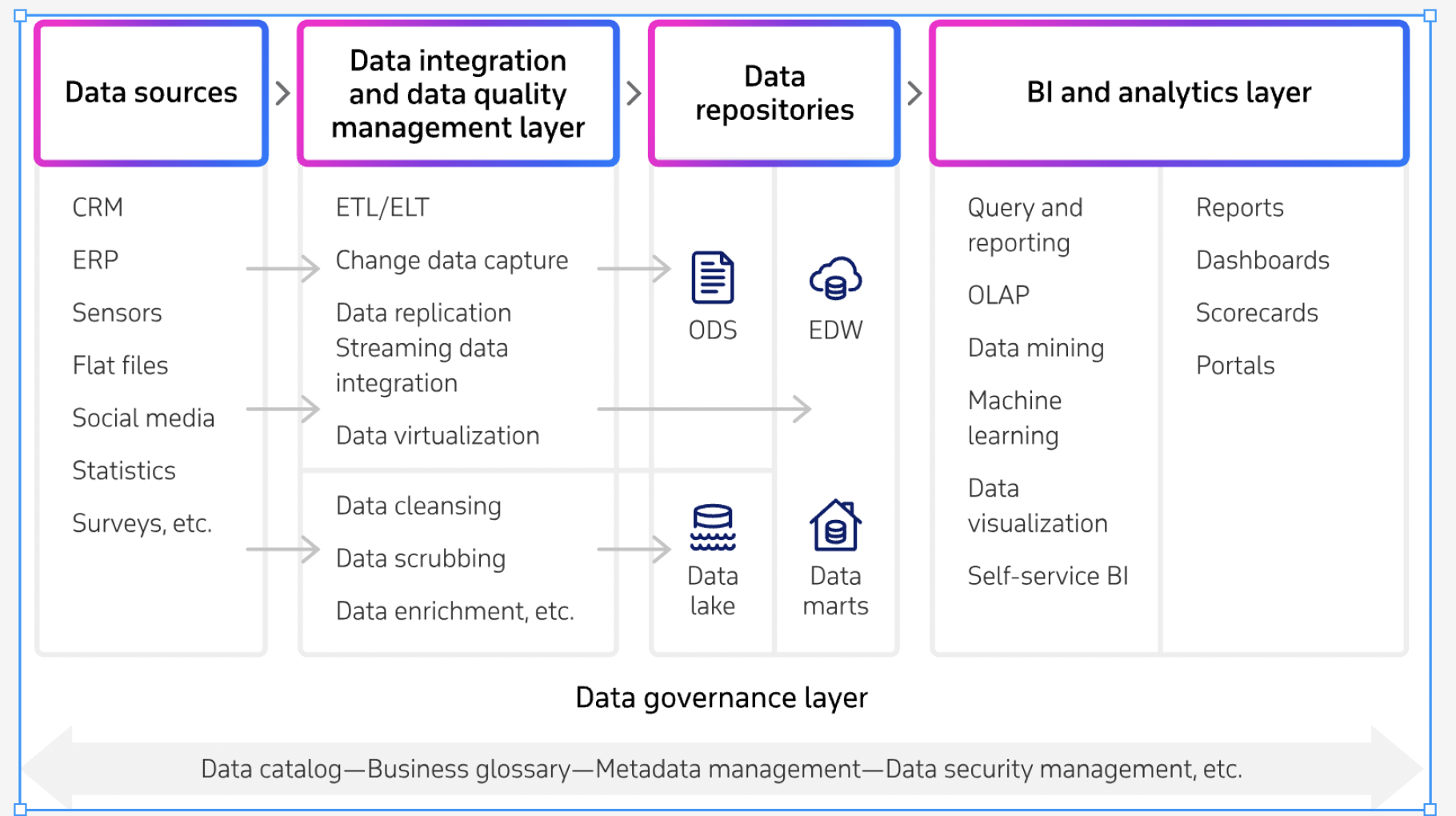
Tip: Mastering tools like FineDataLink can enhance your efficiency and make you a more competitive candidate in data analyst jobs.
Data Analyst Jobs' Learning Opportunities

Growth in Startups
Rapid Skill Development
Startups provide an environment where you can develop skills quickly. With smaller teams and diverse responsibilities, you often handle multiple aspects of data analysis. For example, you might build data pipelines, create dashboards, and present insights to stakeholders—all within a short timeframe. This hands-on experience accelerates your learning and equips you with a broad skill set. Continuous learning is essential in this field, and startups offer the perfect setting to stay updated with emerging trends and technologies. By working in a startup, you gain exposure to various tools and techniques, making you a versatile data analyst.
Opportunities for Leadership Roles
Startups often give you the chance to take on leadership roles early in your career. As the company grows, your contributions can position you as a key decision-maker. For instance, you might lead a project to optimize customer data analysis or mentor new team members. These opportunities not only enhance your leadership skills but also improve your career prospects. Understanding how startups utilize data analysis can give you a competitive edge, allowing you to specialize and excel in this dynamic environment.
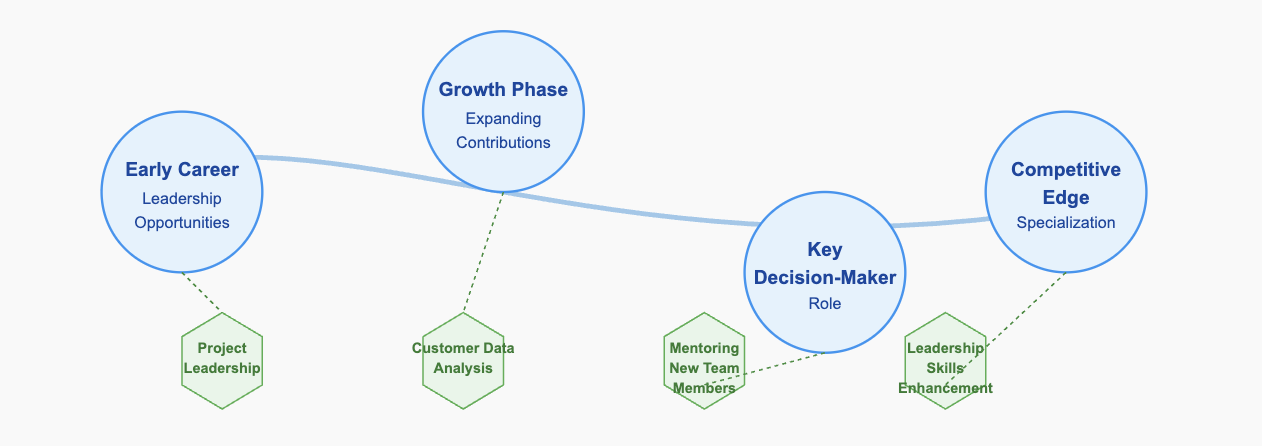
Growth in Established Companies
Structured Career Paths
Established companies provide well-defined career paths that help you plan your professional journey. You might start as a junior data analyst and progress to senior roles, such as data scientist or analytics manager. These organizations often outline clear milestones, making it easier for you to track your career growth prospects. Specializing in specific data functions, like predictive analytics or machine learning, can further enhance your career prospects. This structured approach ensures you gain deep expertise in your chosen area.
Access to Mentorship and Training

In established companies, you benefit from mentorship programs and formal training sessions. Senior analysts or managers often guide you, sharing their expertise and helping you navigate complex projects. These companies also invest in your development by offering access to industry conferences, online courses, and certifications. Staying current with advancements in data analysis not only fosters your growth but also demonstrates your commitment to the field. This support system makes established companies an excellent choice for long-term career development.
Key Differences in Career Development
Learning on the Job vs Formal Training
Startups emphasize learning on the job. You gain practical experience by tackling real-world challenges, which helps you adapt quickly to new situations. In contrast, established companies focus on formal training. They provide structured programs that teach you advanced techniques and tools. Both approaches have their merits. While startups prepare you for diverse roles, established companies help you master specific skills.
Networking Opportunities with Tools like FineBI
Networking plays a crucial role in your career growth. Startups offer informal networking opportunities through close-knit teams and collaborative projects. Established companies, on the other hand, provide access to professional networks and industry events. Tools like FineBI enhance these opportunities by enabling data collaboration across teams. FineBI’s self-service analytics and real-time insights allow you to share findings effectively, fostering teamwork and professional connections. Leveraging such tools can significantly boost your data analyst growth prospects.
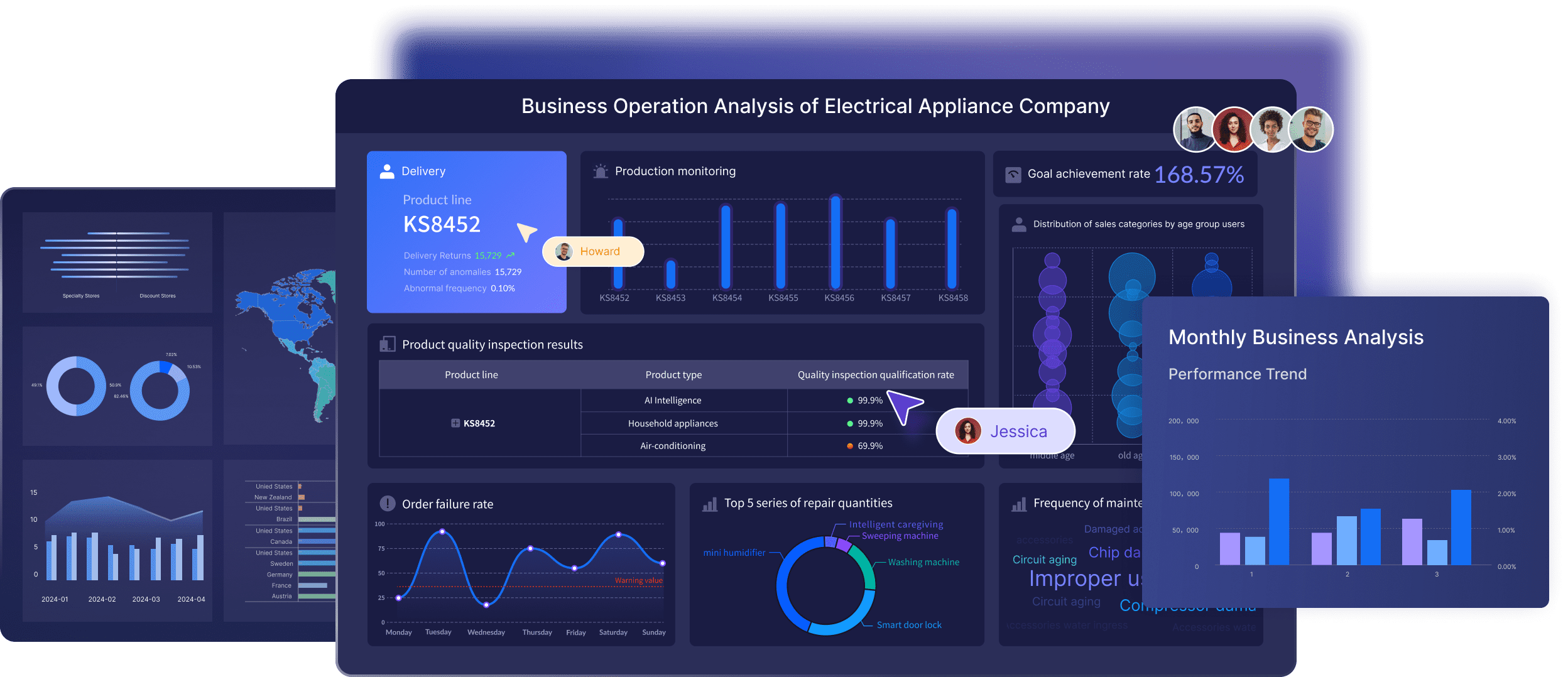
Tip: Whether you choose a startup or an established company, staying updated with industry trends and technologies is vital. Engaging in online courses, conferences, and community events can enhance your skills and career prospects.
Salary and Benefits in Data Analyst Jobs
Compensation in Startups
Base Salary and Equity Options
Startups often offer competitive base salaries, though they may not match the higher ranges seen in larger organizations. For entry-level data analysts, salaries typically range from $61,000 to $101,000 annually. However, startups frequently compensate for this with equity options. These options allow you to own a stake in the company, which could yield significant financial rewards if the startup succeeds. For example, early employees at companies like Airbnb and Uber benefited greatly from equity as the companies grew.
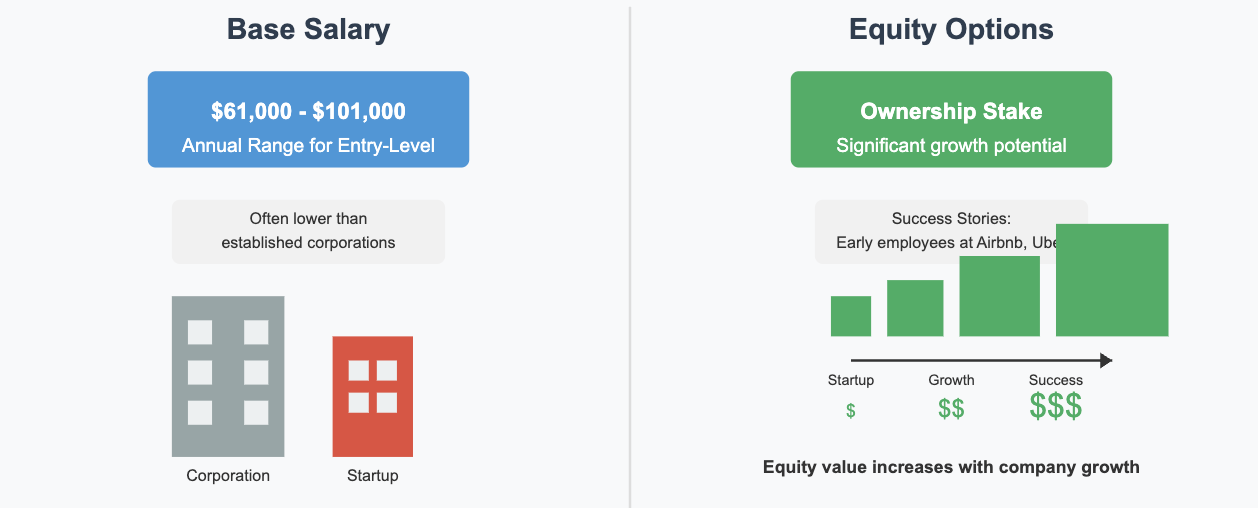
Equity options can be a valuable addition to your compensation package, especially if you believe in the startup's mission and growth potential. While the base salary might seem modest compared to established companies, the long-term financial upside could be substantial.
Perks and Non-Monetary Benefits
Startups often provide unique perks to attract talent. These might include flexible work hours, remote work opportunities, and casual office environments. Some startups also offer benefits like free meals, gym memberships, or wellness programs. These perks aim to create a positive work culture and compensate for the lack of extensive benefits packages.
While startups may not always provide comprehensive healthcare or retirement plans, they often focus on creating a supportive and engaging workplace. This approach can make your work experience more enjoyable and fulfilling.
Compensation in Established Companies

Competitive Salaries
Established companies typically offer higher base salaries compared to startups. For example, the median starting salary for data analysts in these organizations is around $108,000 annually, with senior positions exceeding $137,000. These companies also provide structured salary increments based on experience and performance.
| Experience Level | Average Total Compensation |
|---|---|
| 1-4 years | $67,741 |
| 7+ years | Over $100,000 |
This structured approach ensures financial stability and rewards your expertise as you progress in your career.
Comprehensive Benefits Packages
In addition to competitive salaries, established companies offer comprehensive benefits packages. These often include healthcare, dental, and vision coverage, with 75% of companies providing healthcare benefits and over two-thirds offering dental and vision plans. Retirement plans, paid time off, and parental leave are also common.
These benefits provide a sense of security and support, allowing you to focus on your work without worrying about personal finances or healthcare needs.
Work-Life Balance
Flexibility in Startups
Startups often provide greater flexibility in work schedules. You might have the option to work remotely or set your own hours. This flexibility can help you balance personal and professional responsibilities. However, the fast-paced nature of startups may require you to work longer hours during critical projects.

Startups also encourage a collaborative environment, where you can take on diverse roles and responsibilities. This dynamic setting can enhance your skills but may demand more of your time and energy.
Stability in Established Companies
Established companies prioritize stability and predictability. They often have structured work schedules and clear boundaries between work and personal life. This stability allows you to maintain a healthier work-life balance.
Specialized roles in these companies mean you can focus on specific tasks without the pressure of juggling multiple responsibilities. This structured environment supports long-term career growth while ensuring you have time for personal pursuits.
Tip: Evaluate your priorities when choosing between startups and established companies. If you value flexibility and rapid growth, startups might be ideal. If you prefer stability and comprehensive benefits, established companies could be a better fit.
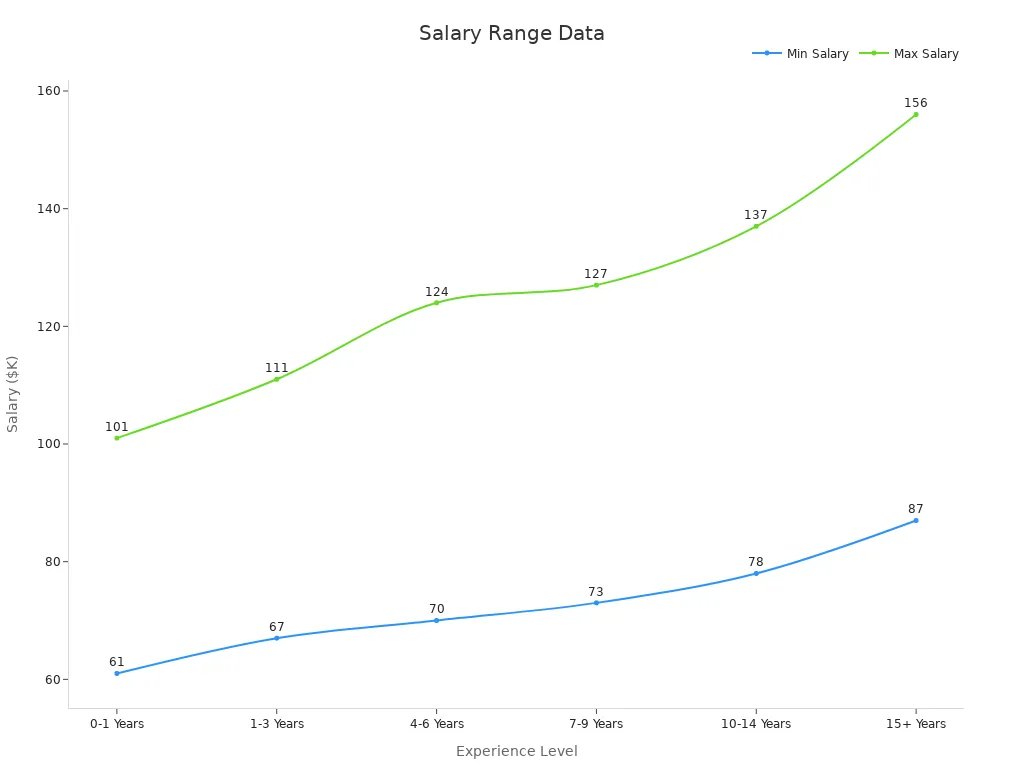
Challenges and Opportunities in Data Analyst Jobs
Challenges in Startups
Uncertainty and Risk
Working in a startup often involves navigating uncertainty. These organizations operate in volatile markets, where priorities can shift rapidly. As a data analyst, you may face challenges like unclear goals or incomplete datasets. Startups frequently lack established processes, which can make your role unpredictable. For example, you might need to adjust your analysis to align with sudden changes in business strategy. This uncertainty requires you to stay adaptable and proactive.
Startups also carry financial risks. Limited budgets may restrict access to advanced tools or resources. You might need to rely on cost-effective solutions, which could limit the scope of your analysis. Despite these challenges, your ability to adapt and innovate can help you thrive in this environment.
High Workload and Pressure
Startups demand a high level of commitment. With smaller teams, you may handle multiple responsibilities, from data collection to presenting insights. Deadlines are often tight, and the workload can feel overwhelming. For instance, you might need to analyze customer behavior while simultaneously building dashboards for stakeholders. This pressure can lead to burnout if not managed effectively.
However, the fast-paced nature of startups also fosters growth. By embracing these challenges, you can develop resilience and a diverse skill set that sets you apart in the job market.
Challenges in Established Companies

Bureaucracy and Slow Decision-Making
Established companies often have rigid structures that slow down decision-making. As a data analyst, you might encounter layers of approval before implementing changes. This bureaucracy can hinder your ability to act on insights quickly. For example, your recommendations for optimizing a data pipeline might take weeks to gain approval.
These organizations also tend to follow traditional processes, which may limit your creativity. While the structured environment ensures consistency, it can feel restrictive if you prefer a more dynamic role. Research highlights that bureaucratic challenges often reduce the influence of data analysts on company culture and decision-making.
Limited Scope for Innovation
In established companies, your role may focus on specialized tasks. While this allows you to deepen your expertise, it can limit your exposure to innovative projects. For instance, you might spend most of your time generating reports rather than exploring new analytical methods. This narrow focus can feel monotonous over time.
Despite these limitations, established companies offer stability and access to advanced tools. By leveraging these resources, you can still make meaningful contributions within your defined scope.
Opportunities in Startups
Building Something from Scratch
Startups provide unique opportunities to build data systems from the ground up. You might design data pipelines, create dashboards, or establish analytics processes. This hands-on experience allows you to shape the company’s data strategy. For example, your work could inform product development or marketing campaigns, helping the startup avoid costly mistakes.
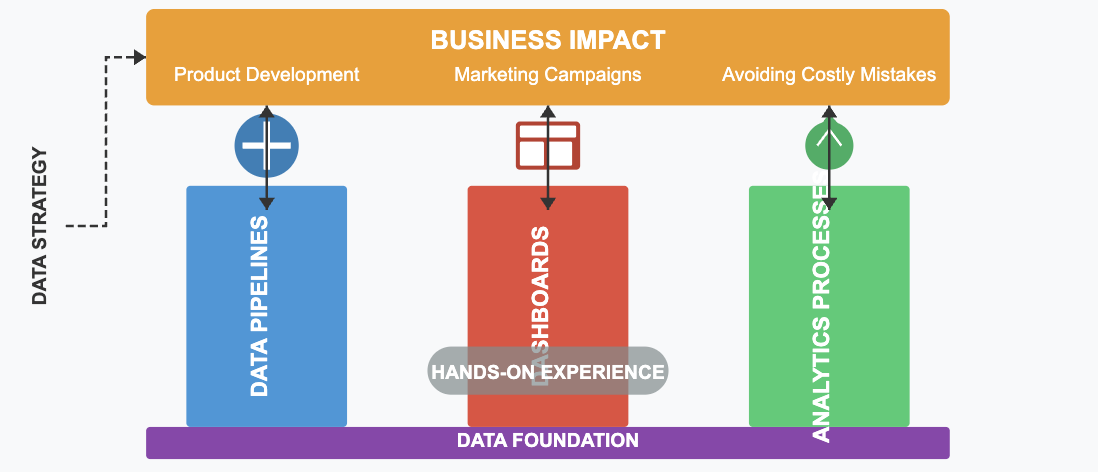
Your contributions in a startup environment often have a direct impact. By taking ownership of projects, you gain valuable experience that accelerates your career growth.
Making a Tangible Impact
Startups rely heavily on data to drive decisions. As a data analyst, your insights play a crucial role in shaping the company’s direction. You might analyze customer behavior to refine marketing strategies or use predictive analytics to guide financial decisions. These contributions make your work highly visible and rewarding.
Startups also offer opportunities to influence company culture. By promoting data-driven decision-making, you help create a foundation for long-term success. This level of impact is rarely achievable in larger organizations, making startups an exciting choice for ambitious professionals.
Tip: Embrace the challenges and opportunities in startups to develop a versatile skill set and make a lasting impact.
Opportunities in Established Companies

Access to Resources and Expertise
Established companies provide you with access to advanced tools and resources that enhance your work as a data analyst. These organizations often invest in enterprise-level software, such as Tableau or Power BI, which allows you to create detailed reports and visualizations. You can also benefit from the expertise of senior colleagues and mentors. Their guidance helps you refine your skills and tackle complex projects with confidence.
Large companies frequently offer training programs and workshops. These initiatives keep you updated on the latest trends and techniques in data analysis. For example, you might learn about predictive analytics or machine learning applications. This access to resources and expertise ensures that you stay competitive in the ever-evolving field of data analysis.
Long-Term Career Stability
Working in an established company provides you with long-term career stability. These organizations often have structured career paths, allowing you to plan your professional growth. You might start as a junior analyst and progress to roles like data scientist or analytics manager. This clear progression helps you set and achieve career goals.
Established companies also offer financial security. Competitive salaries, comprehensive benefits, and retirement plans create a stable foundation for your future. Additionally, these organizations often have a global presence, giving you the chance to work on international projects. This stability and exposure make established companies an attractive choice for many professionals.
How FineReport Supports Data Visualization in Both Settings
FineReport enhances your ability to create impactful data visualizations, whether you work in a startup or an established company. Its intuitive drag-and-drop interface allows you to design dashboards without coding knowledge. This feature is particularly useful in startups, where you may need to handle multiple tasks efficiently.
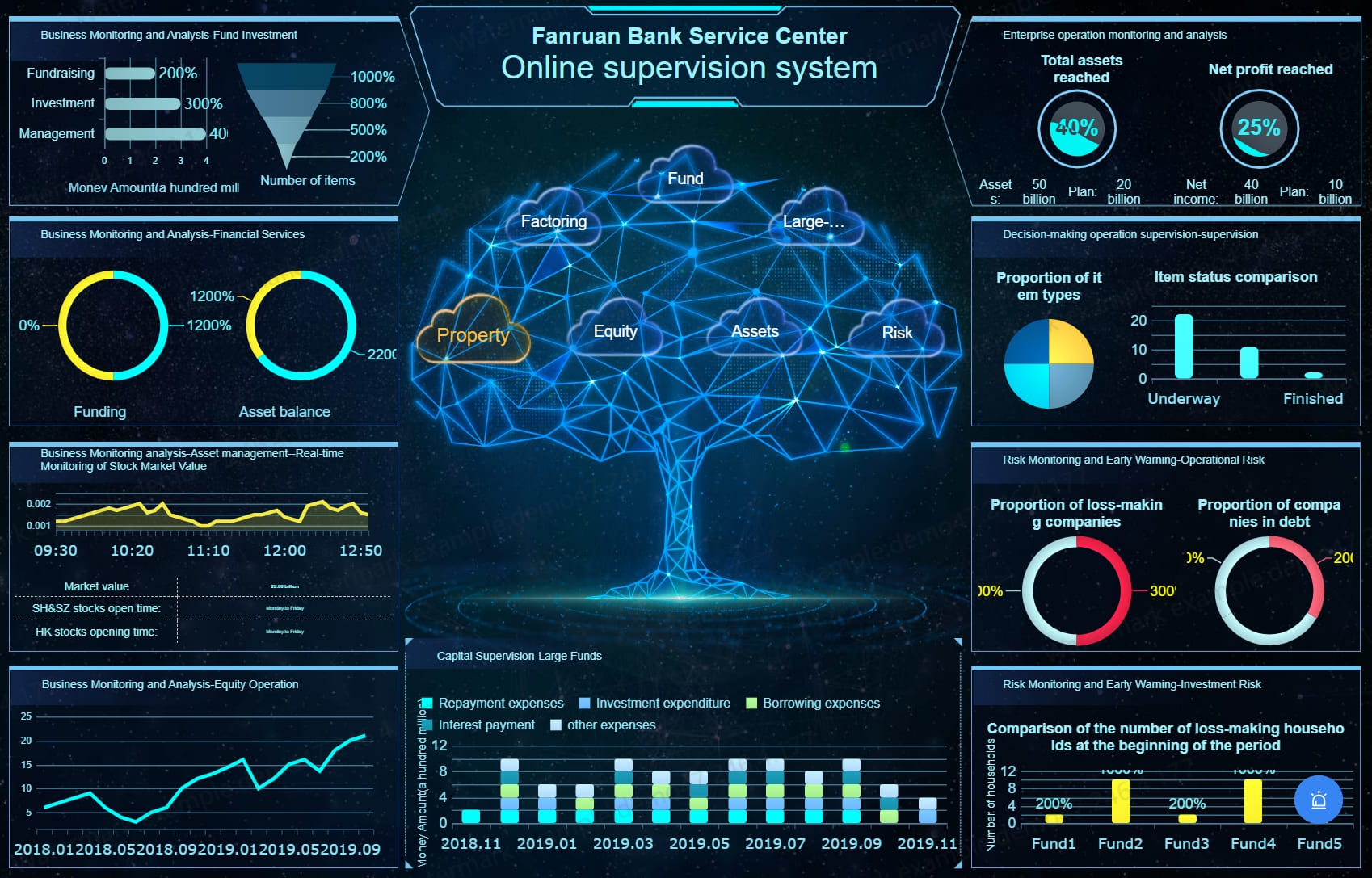
In established companies, FineReport supports advanced techniques like predictive analytics and machine learning. These capabilities enable you to generate powerful visualizations that simplify complex datasets. For example, you can use FineReport to create interactive charts that help stakeholders understand trends and make informed decisions.
FineReport also integrates seamlessly with tools like Tableau and Power BI. This compatibility ensures that you can leverage its features alongside other industry-standard platforms. By using FineReport, you can enhance your data visualization skills and contribute more effectively to your organization’s goals.
Tip: Mastering tools like FineReport can boost your career prospects by improving your ability to present data-driven insights.
Data Analyst Jobs: Interviewing for a Startup vs Established Company
Preparing for Startup Interviews
Highlighting Versatility and Adaptability
When interviewing for a startup, you need to demonstrate your ability to handle diverse responsibilities. Startups often lack formal structures, so you may work directly with high-level executives like the CEO. This setup requires you to show versatility and adaptability. For example, you might need to explain how you can manage tasks like building dashboards, analyzing customer trends, and presenting insights to stakeholders. Highlighting your ability to wear multiple hats will set you apart from other candidates.
Startups value candidates who understand their business goals and can align data analysis with strategic objectives. A strong passion for data and a deep understanding of the company’s mission can make a significant impression. Your ability to adapt to a fast-paced environment and contribute to various projects will demonstrate your readiness to thrive in a startup setting.
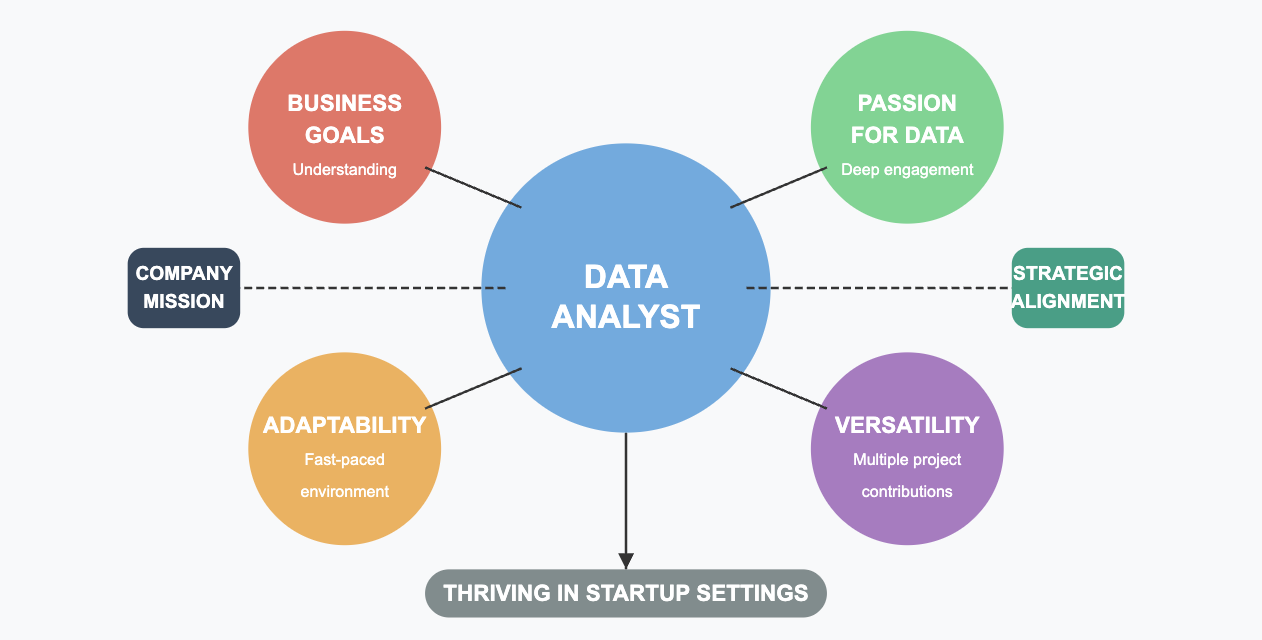
Demonstrating Problem-Solving Skills
Startups often assess problem-solving skills through scenario-based questions or case studies. You might encounter questions like, “How would you analyze customer churn for a subscription-based service?” or “What metrics would you prioritize for a new product launch?” These questions test your critical thinking and decision-making abilities.
To prepare, practice solving real-world problems using data. Familiarize yourself with tools like Python and SQL, as startups often prioritize cost-effective and adaptable technologies. A table summarizing strategies for startup interviews can help you focus your preparation:
| Strategy | Description |
|---|---|
| Comprehensive Interview Process | Evaluate technical, business, and soft skills through in-depth assessments. |
| Problem-Solving Assessment | Use case studies to showcase critical thinking and decision-making skills. |
| Strong Employer Brand | Align your answers with the startup’s values and culture. |
Preparing for Established Company Interviews
Emphasizing Specialized Skills
Established companies often seek candidates with expertise in specific areas of data analysis. During the interview, emphasize your proficiency in tools like Tableau, Power BI, or SAS. For example, you might discuss how you used predictive analytics to forecast sales trends or optimized a data pipeline to improve efficiency.
These companies typically have structured recruitment processes, often involving multiple interview rounds. Specialized HR professionals may conduct the initial screening, followed by technical assessments and interviews with senior team members. To succeed, focus on showcasing your technical expertise and ability to deliver high-quality insights.
Showcasing Experience with Tools like FineChatBI
Experience with advanced tools like FineChatBI can give you an edge in established company interviews. FineChatBI’s ability to interpret natural language queries and generate actionable insights makes it a valuable asset for data analysts. Highlight how you’ve used similar tools to streamline data analysis and improve decision-making. For instance, you could explain how FineChatBI’s Text2DSL technology helped you verify query accuracy and enhance trust in your results.
Established companies value candidates who can leverage such tools to handle complex data queries and provide transparent, reliable insights. By showcasing your experience, you demonstrate your readiness to contribute effectively to their data-driven strategies.
Key Differences in the Interview Process
The difference between interviewing for a startup and an established company lies in the structure and focus of the process. Startups often have informal interviews led by high-ranking officials like the CEO. These interviews emphasize versatility, adaptability, and alignment with the company’s mission. In contrast, established companies follow a formal, multi-layered process involving HR professionals and senior leaders. They focus on specialized skills and technical expertise.
In startups, you may face questions about handling diverse responsibilities and solving real-world problems. Established companies, however, often test your proficiency in specific tools and techniques. Understanding these differences will help you tailor your preparation and succeed in your data analyst interview.
Tip: Practice SQL queries, review key statistics concepts, and prepare for problem-solving questions to excel in both startup and established company interviews.
Choosing between data analyst jobs in startups and established companies depends on your career goals. Startups offer diverse responsibilities, rapid growth, and a chance to shape company culture. Established companies provide stability, specialized roles, and access to advanced resources. The table below highlights key differences to guide your decision:
| Aspect | Startups | Established Companies |
|---|---|---|
| Responsibilities | Broader range due to smaller teams | More specialized roles focusing on specific tasks |
| Growth Opportunities | More opportunities for advancement and influence | Bureaucratic structures may limit progression |
| Impact on Culture | Crucial role in shaping a data-driven culture | Less impact as data-driven culture is already established |
Align your preferences with the environment that suits you best. Tools like FineDataLink and FineBI can enhance your skills, helping you excel in any setting.
Click the banner below to try FineReport for free and empower your enterprise to transform data into productivity!
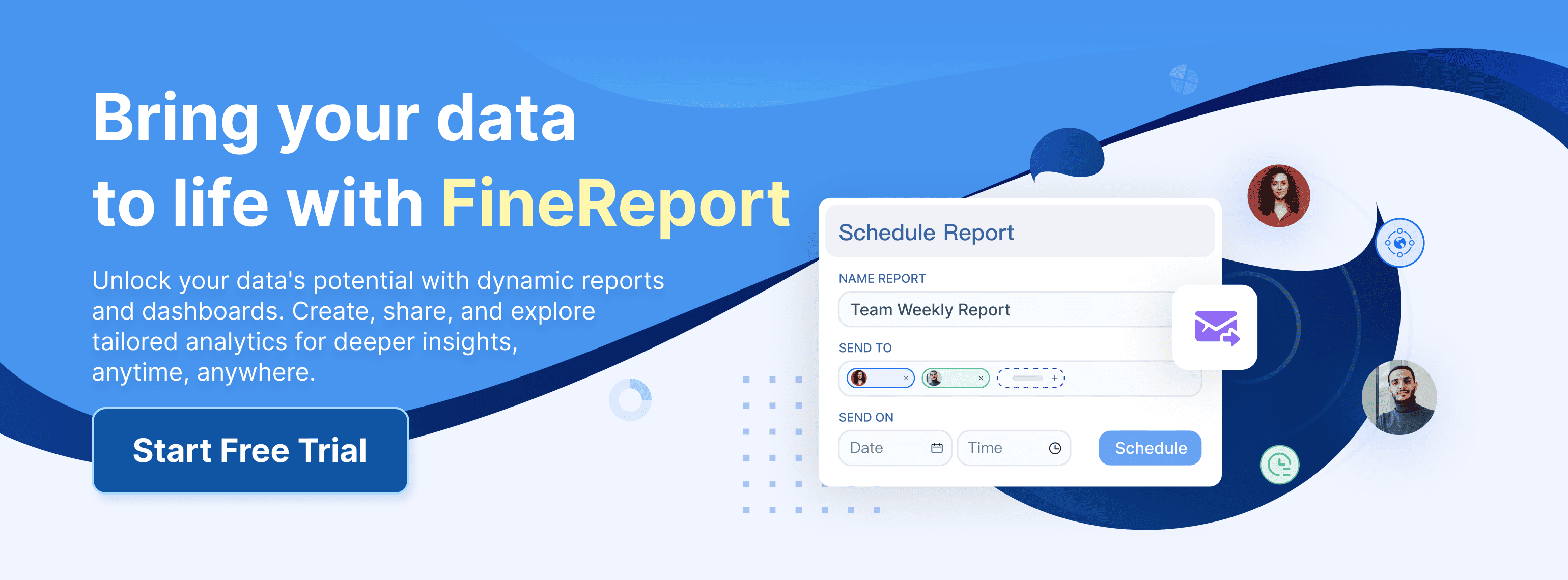
Continue Reading About Data Analysis
How to Fix Data Analysis Excel Not Showing in 2025
What is SaaS Analytics and Why Businesses Need It
Top Beginner-Friendly Data Analysis Projects to Build Your Portfolio
Data Analysis vs Data Analytics: What’s the Real Difference?
FAQ

The Author
Lewis
Senior Data Analyst at FanRuan
Related Articles
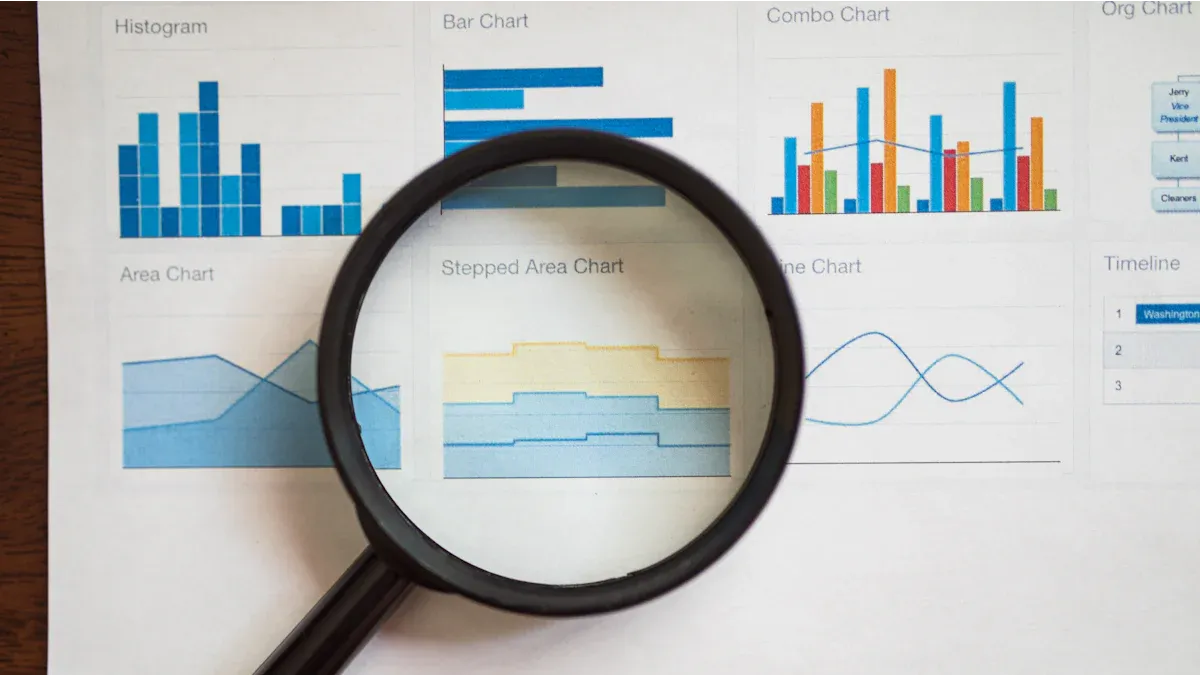
What is Distribution Analysis in Mathematics and Statistics
Distribution analysis in mathematics and statistics examines how data values spread, helping identify patterns and predict outcomes accurately.
Lewis
Dec 28, 2025

10 Best Retail Analytics Software Platforms for Retailers
Compare the 10 best retail analytics software platforms for retailers to boost sales, optimize inventory, and gain actionable customer insights.
Lewis
Dec 16, 2025

11 Best Tools for Research Analysis for Academics
Compare the 11 best tools for research analysis to boost academic and professional research efficiency, data management, and collaboration.
Lewis
Dec 11, 2025
